Classical Civilisation
Exam Board: OCR
Course Entry Criteria: 6 in GCSE English Literature
Essential skills:
An interest in History and Literature is crucial to this course. You will get to grips with some of the most fascinating texts ever produced and explore exotic societies and distant lives, so an inquisitive mind and desire to delve into the unfamiliar will be invaluable. You will also be expected to engage with ancient art, architecture and artefacts, so a critical eye is key. Strong essay writing skills are also required.
The A Level course consists of three modules:
The World of the Hero
In this unit, you will study two epic poems, one from Greece and one from Rome. From Greece, you will read Homer’s Odyssey, the classic tale of a man’s 10 year quest to return home after war. Meet Odysseus, the most cunning of the Greek heroes, as he pits his wits against a tide of obstacles standing between him and his home. This is a fantastical tale of gods, monsters and heroes, but also sheds light on the ancient world’s attitudes to women, slaves, war, family and civilisation itself.
From Rome, you will study Virgil’s Aeneid. The national poem of the ancient Roman people, the Aeneid tells the story of Aeneas, a Trojan prince and refugee from the Trojan War. He leads the remnants of his people on an epic journey across the world to found a new city: Rome. This epic encompasses themes as diverse as war, love, duty, fate and civilisation. Virgil’s story of a man, whose home has been destroyed by war, trying to do the right thing for his people is as relevant today as it was when it was written 2,000 years ago.
Imperial Image
The idea of a politician ‘spinning’ their public image is one which is very familiar from our contemporary media, but it is not a new concept. Politicians from ancient Rome managed popular opinion in much the same way as they do today. This module examines the political career of Augustus Caesar, the man who is often called the “First Emperor of Rome”, to see how he was able to convince the Roman people, who were fundamentally against monarchy, to accept his one-man-rule. This module will give you the opportunity to examine a range of literary sources, from poems to speeches and biography, seeing how different authors presented Augustus in their work. You will also engage with some of the greatest works of art and architecture that have survived to us from ancient Rome, as well as ancient Roman archaeological remains. The Townley Classics Department are excited to offer this module, which was designed for the OCR exam board by our own staff.
Love and Relationships
Ideas about love and relationships are key aspects of the literature, thoughts, and ethics of any society. This module offers the opportunity to recognise and relate to the passions, frustrations and delights of love in the ancient world. You will have the opportunity to learn about the daily lives of men and women in Greece and Rome to appreciate the likely realities of their relationships. The work of two ancient philosophers relating to ideals of love and relationships will also be studied. From Greece, the ideas of Plato and from Rome, those of Seneca. A final aspect of this module is the representation of love and relationships in the poetry of two of the greatest poets from antiquity, Sappho and Ovid. Both of these poets pushed against societal expectations, so their works are excellent case studies.
University requirements
Typical grade requirements to study Classics related degrees:
Oxbridge: A* A A
Russell Group: A A A-A ABB
Non-Russell Group B B B and below
Related courses and careers
Classical Civilisation is regarded very highly by employers and universities.
The study of any classical subject would benefit those students interested in, among others, a career in: Law, the Civil Service, Politics, the Media, Marketing & Communications, Teaching, Art, Medicine and working in museums and archives.
Other Details
No prior knowledge either of the Classical World or of Latin or Greek is required for this course.
 Classical Civilisation is highly regarded by colleges, universities and employers. This is because it is a multi-disciplinary subject that encourages students to examine issues from multiple viewpoints and to hone a range of valuable skills. Students have the chance to discuss great works of literature and art, as well as hone their historical skills by using visual and written sources to learn about the ancient past. They also practice debate and develop strong written communication skills. Students who choose this course will have the opportunity to examine the mythology, history, literature and society of ancient Greece and Rome, examining significant events and exciting individuals as well as the “ordinary” lives of common citizens.
Classical Civilisation is highly regarded by colleges, universities and employers. This is because it is a multi-disciplinary subject that encourages students to examine issues from multiple viewpoints and to hone a range of valuable skills. Students have the chance to discuss great works of literature and art, as well as hone their historical skills by using visual and written sources to learn about the ancient past. They also practice debate and develop strong written communication skills. Students who choose this course will have the opportunity to examine the mythology, history, literature and society of ancient Greece and Rome, examining significant events and exciting individuals as well as the “ordinary” lives of common citizens.

